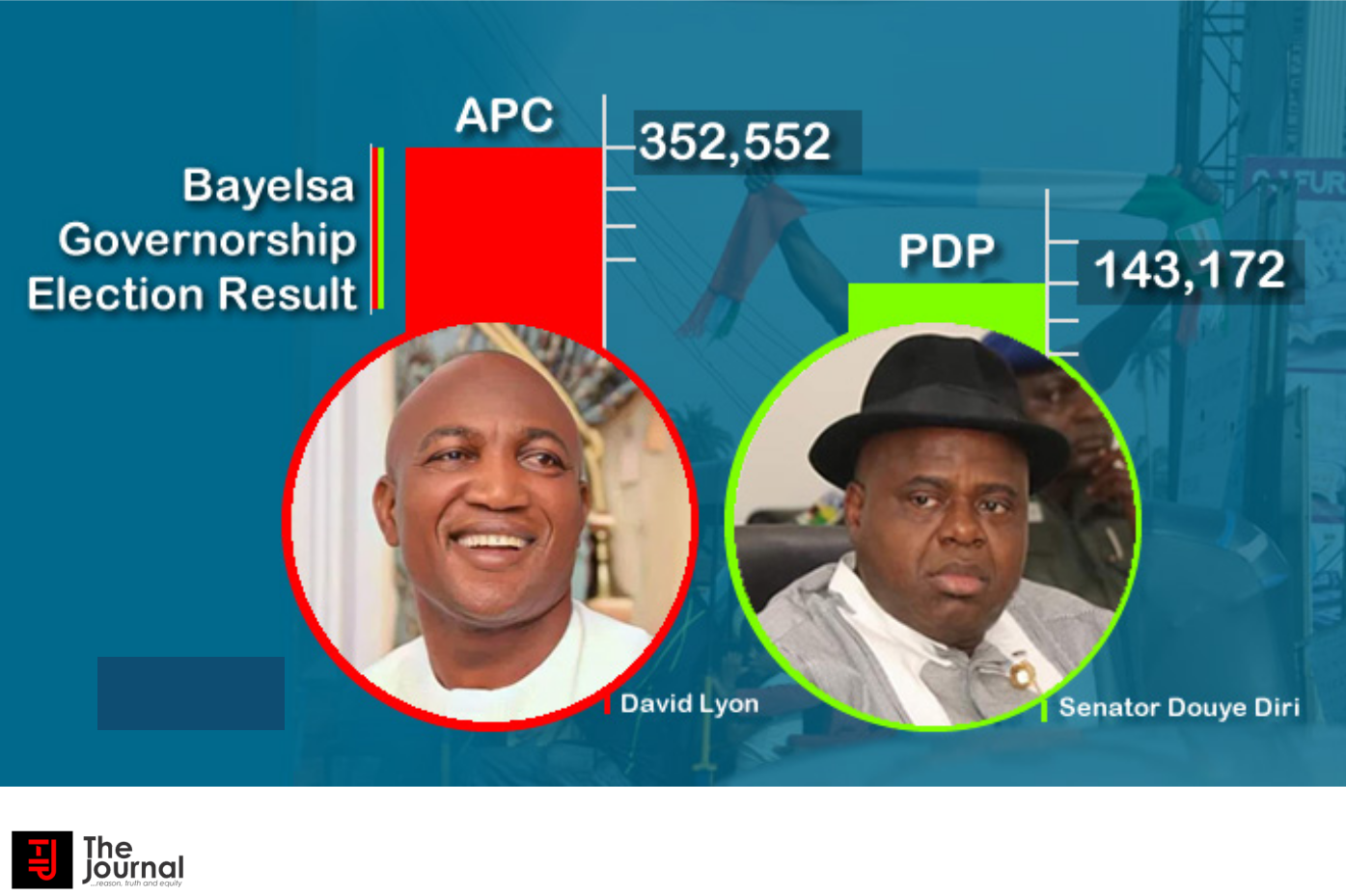
Like most oil-rich territories, the story and dynamics of Bayelsa is a delicate yet convoluted one. Created under the auspices of the infamous General Sani Abacha in 1996, it is renowned to be the very first place crude was discovered in Nigeria in the 1950s. However, despite her wealth, the majority of Bayelsa indigenes dwell in poverty with the banal ambition of just surviving.
Since the inception of the fourth republic, that is, the post-Abacha-Abdulsalam democracy, the People’s Democratic Party (PDP) has been in the helms of affairs in Bayelsa. Starting with Diepreye Alamieyeseigha, and later to the governorships of Goodluck Jonathan, Timipre Sylva and Governor Henry Seriake Dickson. Post-Dickson, however, with the All Progressive Congress gaining a strong foothold in previously PDP-dominated spaces after shockingly deposing the incumbent president in 2015, David Lyon Perewonrimi, who was a former PDP member and contested for the Southern Ijaw IV in 2011, elected to pitch his tent with APC, decamping from PDP.
Of the 45 candidates who contested in November 16, election results initially pronounced David Lyon as winner on a landslide scale with 352,552 votes out of 516,371 voters of the 867,000 registered in the state. The first time another party would win the elections in the state outside the PDP in 20 years.
In a weird turn of events, however, as he went about rehearsing and preparing for inauguration as governor, the Federal High Court in Abuja disqualified Degi-Eremienyo, David Lyon’s running mate on legitimate grounds of certificate forgery, stating that the disqualification made the APC victory null and void. An event that sent alleged PDP apologists and supporters down the streets in wild jubilation, beating drums and pulling down APC flags with music blaring; pleased their party in back on board.
In another bitter twist of event, with the ‘new governor’ Douye Diri just about settling in and getting comfortable in his role in the oil-rich state, the tribunal recently pronounced the whole Bayelsa election exercise null and void. This is on account of a pre-election matter of disqualification of the candidate of Advance Nigeria Democratic Party (ANDP) on grounds that the fielded deputy of the party, David Esinkuma, was yet to be 35-years old, which is the constitutional threshold age in the country. Lucky King-George, who was the candidate of the disqualified and ill-fated party had asked the tribunal to revoke the legitimacy of the election owing to being unlawfully excluded from the November 16 election. While the Independent National Electoral Commission explained that it had excluded ANDP from the whole process because the fielded deputy was illegible to run on account of his age, the ANDP party have been able to prove that they had timely substitute for their deputy before the election. As it turns out, the ANDP are not the major contenders in the race.
Read Also: Waiting for the Invention of the Nigerian Digital Currency
The trifecta-man panel of the tribunal initially dismissed reports challenging the legitimacy of the election upon rising accusations that the election lacked credibility because of the rife incompetence and demerit of the process, however, while delivering a judgement on another petition recently, the panel acceded that the election was indeed unlawful owing to the exclusion of the ANDP party and its candidate. Judge Yunusa Musa who read the judgement thus ordered the Independent National Electoral Commission to conduct a fresh election in the state within three months.
Bayelsa, as it stands, is the latest state to have a governor removed through electoral jurisprudence – a practice that have seen some success across certain states in recent years. And while the rationale behind the nullification of the election is justified, the method and timing are both suspicious and disturbing. For one, elections held on the 16th of November and a petition by the ANDP was filed on the 26th of February 2020 – over twelve weeks after the opportunity to do the very same act, begs questioning, so much that if one were to stretch the right of sentiment, we might say it was mischievous.
Elections by the ballot are a hugely expensive business to begin with. More so in a country like Nigeria where trust in the process does not come cheap. That a party and her persons can see it fit to pull out a card of grievance on account of proving a point, and at a suspicious timing, comes across as an impish stunt, because re-run or not, the race still remains within the APC-PDP axis.
All things being equal, logical prediction of the re-run will definitely favour the winner by landslide in the first election. All the candidate need do is field another deputy with credible credentials, and like shaft in harmattan wind, the first grave mistake is amended without any penalty. What is however so irksome about the whole event, is that the broke, debt-laden country is going to pay for these mistakes.
While it is understood that Nigeria’s is as yet a nascent democracy and we do not have all of our democratic guns together, one must suggest that laws are passed to protect the coffers of the nation from such expensive re-runs and save the image of INEC. In the end, not only are the outcomes of matters of this nature banally predictable, monies that will go into such ventures could be expended more purposefully in tackling the debilitating poverty in Bayelsa for one. We lose our collective cohesion as a people with such needless drag force.
Kelvin Kellman

